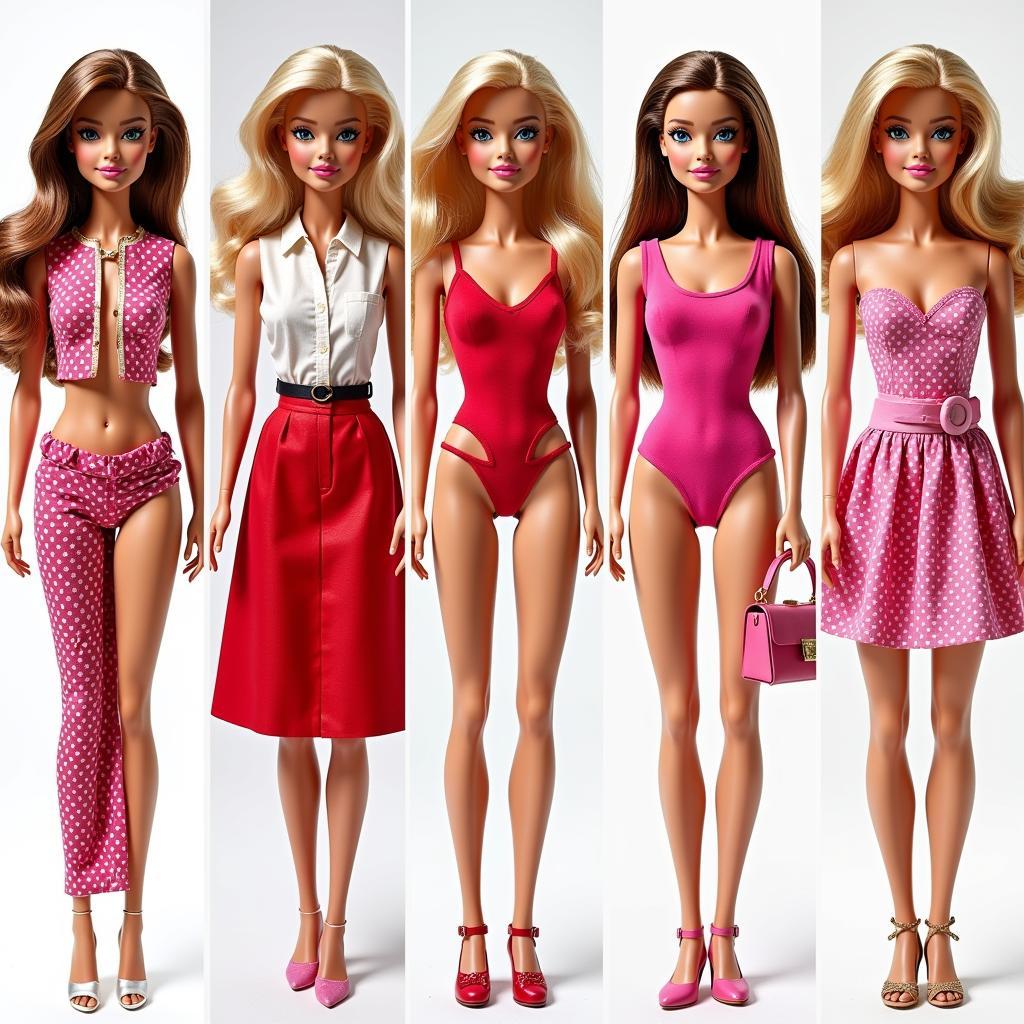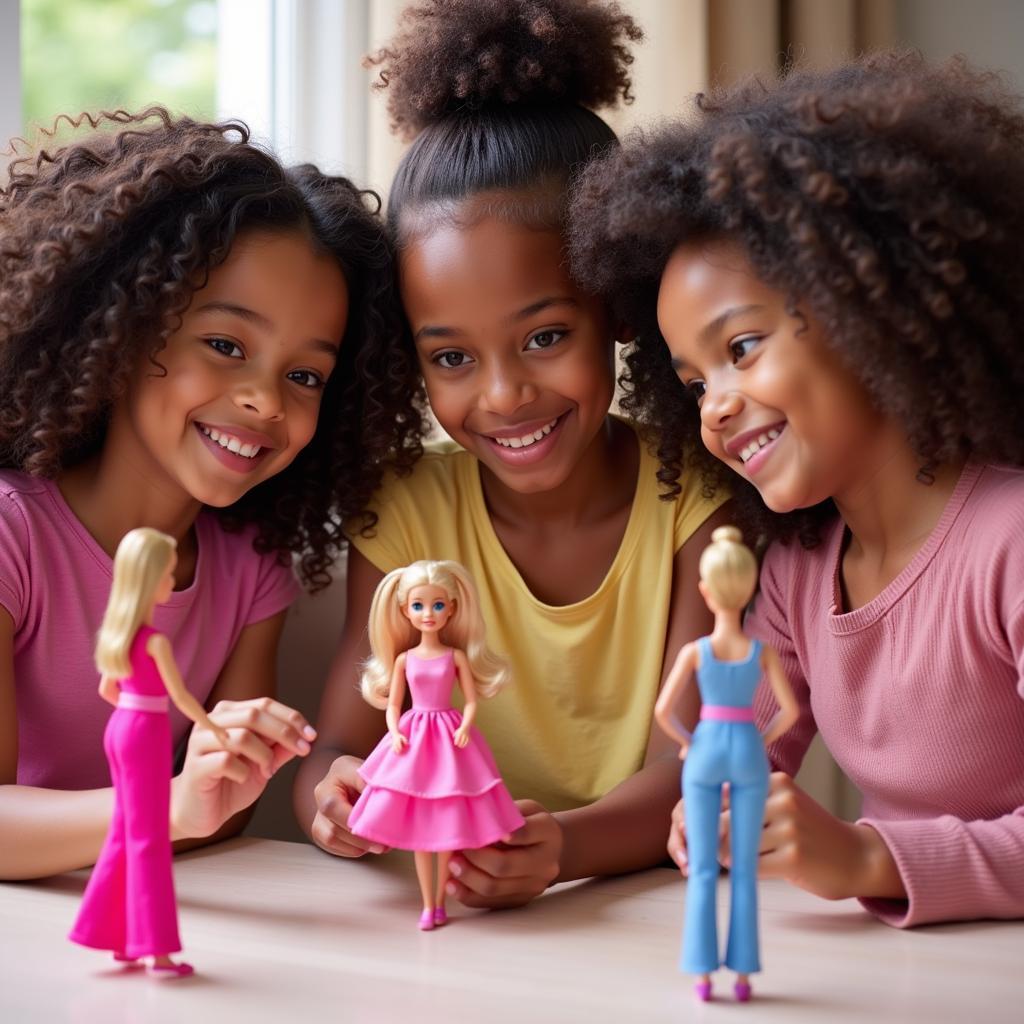Barbie, the iconic doll with the impossibly perfect figure, has been a cultural touchstone for over six decades. Since her debut in 1959, she has sparked countless conversations about body image, gender roles, and consumerism. But how has Barbie truly influenced society? Let’s delve into the fascinating and complex legacy of this global phenomenon.
 Barbie's Evolution Through the Decades
Barbie's Evolution Through the Decades
A Mirror to Society: Reflecting Evolving Ideals
Barbie’s impact on society is undeniable, but it’s important to remember that she doesn’t exist in a vacuum. Rather than dictating cultural norms, Barbie often reflects the values and aspirations of the time. Her evolution, from a teenage fashion model to a career woman embracing diverse roles, mirrors the changing roles of women in society.
 Barbie's Career Dolls: Representation Matters
Barbie's Career Dolls: Representation Matters
Body Image: A Legacy of Both Praise and Criticism
Barbie’s unrealistic body proportions have been a subject of intense debate. Critics argue that her exaggerated figure promotes unattainable beauty standards, particularly among young girls. This has led to concerns about body dissatisfaction, eating disorders, and low self-esteem.
However, recent years have seen Mattel, Barbie’s manufacturer, make significant strides in diversifying the doll’s body types. The introduction of dolls with different body shapes, skin tones, and abilities has been lauded as a step towards greater inclusivity and a more realistic representation of beauty.
Beyond the Doll: Empowering Imagination and Storytelling
While Barbie’s physical appearance has often dominated discussions, it’s crucial to recognize her impact on children’s imaginations. For generations, Barbie has served as a blank canvas for countless stories, dreams, and aspirations. Through play, children develop creativity, social skills, and emotional intelligence, using Barbie as a tool to explore the world around them and their place within it.
 Children Playing with Barbie Dolls: Fostering Imagination and Creativity
Children Playing with Barbie Dolls: Fostering Imagination and Creativity
Conclusion: A Complex Legacy With Room for Growth
Barbie’s influence on society is multifaceted and ever-evolving. She is a reflection of our cultural values, both positive and negative, and a testament to the power of play in shaping young minds. As Barbie continues to adapt to the changing world, it’s crucial that we engage in thoughtful conversations about her legacy and strive to ensure that she represents a positive and empowering force for future generations.